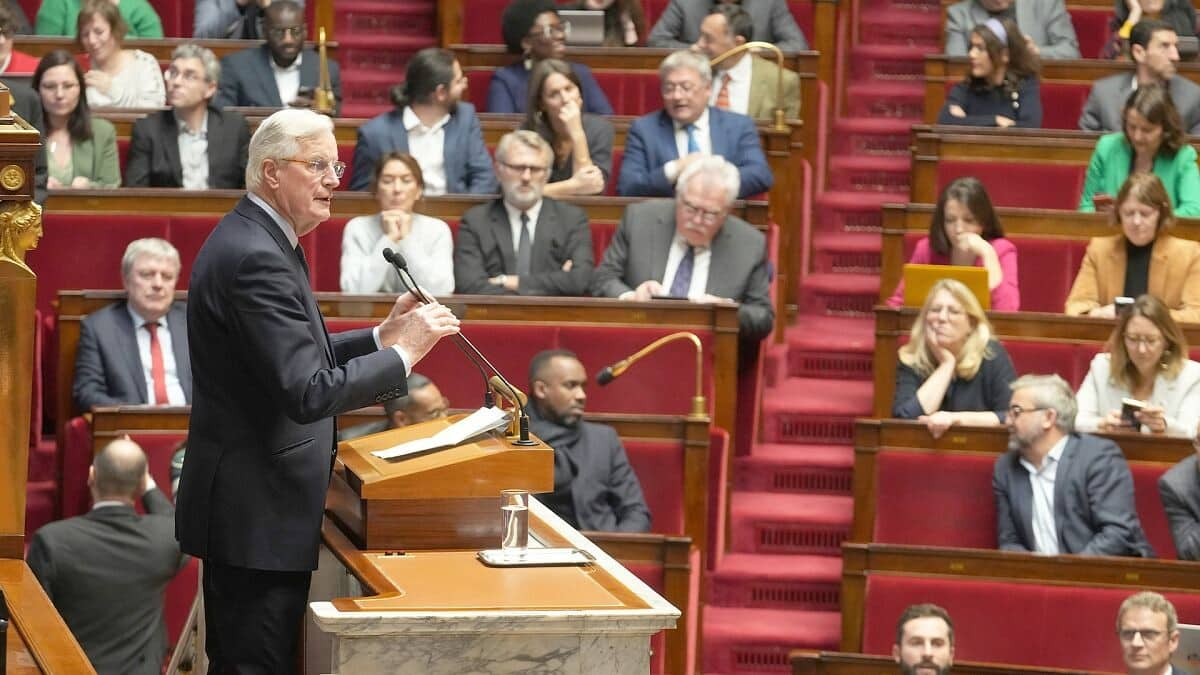
French government on brink of collapse—What this means for Macron
What's the story
The French government, led by Prime Minister Michel Barnier, is on the verge of collapse after no-confidence motions were filed by both left and far-right opposition parties. The motions were filed after Barnier invoked special powers under Article 49.3 to pass a contentious budget without parliamentary approval. The budget includes €60 billion in tax hikes and spending reductions to curb France's soaring deficit.
Political backlash
Opposition parties unite against Barnier's budget move
Barnier's decision to bypass parliament has sparked a political firestorm. Far-right National Rally (RN) leader Marine Le Pen publicly vented her anger, saying, "The French have had enough. We are proposing a motion of no confidence against the government." Meanwhile, left-wing France Unbowed's Mathilde Panot slammed Barnier's move as a "denial of democracy," promising to censure his government.
Vote anticipation
No-confidence vote could oust Barnier's government
The National Assembly will vote on the no-confidence motions on Wednesday. To bring down Barnier's government, at least 289 votes are needed in the lower house. The left parties have between 180 and 192 seats, while the far right and its allies have 141 seats. If both sides join hands against Barnier, they could possibly have enough votes to remove him from power.
Economic concerns
Potential government collapse poses economic risks
The potential collapse of Barnier's government has raised concerns about France's economic stability. The country's deficit has risen from 4.7% of GDP in 2022 to an estimated 6.2% this year. Marta Lorimer from Cardiff University warned that without a new budget, France faces financial uncertainty. This political turmoil comes at a challenging time for France's economy, with Gilles Moec, chief economist at Axa, noting that increased instability could impact consumer confidence and economic recovery efforts.
Presidential dilemma
Macron's options and challenges amid political crisis
If Barnier is ousted, President Emmanuel Macron could appoint a caretaker government or a technocratic administration. However, due to constitutional restrictions, he can't call for snap elections until July. This situation poses a significant challenge for Macron who has faced political hurdles throughout his tenure. The potential collapse of Barnier's government not only threatens France's economic stability but also risks impacting the broader eurozone economy.